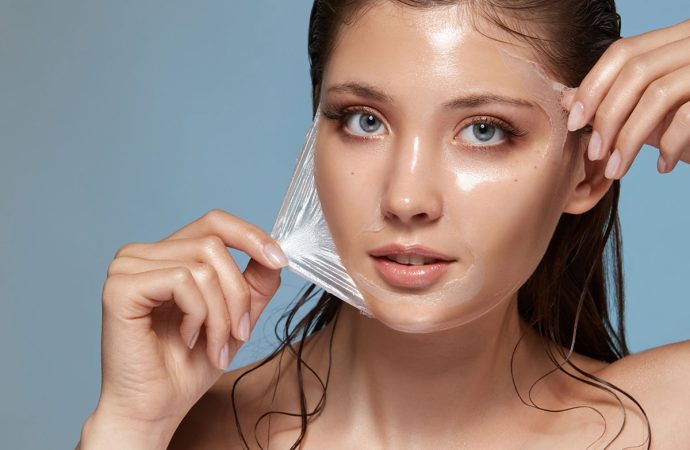Introduction to Advance Chemical Peel Treatment Hello there! You might have heard about chemical peels before — they are not exactly new in the beauty world. But guess what? There’s always room for improvement and innovation! Recently, there’s been a buzz about an advance chemical peel treatment specifically targeting pigmentation issues. Curious? Let’s dive deep together and
Introduction to Advance Chemical Peel Treatment
Hello there! You might have heard about chemical peels before — they are not exactly new in the beauty world. But guess what? There’s always room for improvement and innovation! Recently, there’s been a buzz about an advance chemical peel treatment specifically targeting pigmentation issues. Curious? Let’s dive deep together and explore what this all means for you and your skin.
Understanding: What is an advanced chemical Peel?
Before we jump into the wonders of advanced chemical peels treatment, let’s get our basics straight about pigmentation. Pigmentation refers to the coloring of your skin. Thanks to melanin, we have the beautiful and unique skin colors that we do. However, sometimes, our skin decides to produce too much melanin in certain spots, leading to conditions like hyperpigmentation, melasma and age spots.
- Causes vary, from sun exposure to hormonal changes and even genetics.
- It’s more common than you think, and yes, it can be quite a bother.
Benefits of Advance Chemical Peel Treatment
My Personal Experience
I remember looking into the mirror and sighing at the stubborn sunspots greeting me. Traditional remedies didn’t cut it for me until I stumbled upon advanced chemical peels. Yes, I was a bit apprehensive, but, oh boy, was the journey worth it! My skin started to look more even-toned, and those bothersome spots? Faded!
Remember, beautiful skin is a journey, not a sprint. Be patient and kind to yourself along the way.
Renewed Skin Texture
The primary allure of a chemical peel lies in its ability to renew the skin’s texture. By removing the outer layer of damaged skin, individuals experience a smoother and more even complexion.
Reduction of Fine Lines and Wrinkles
Aging is inevitable, but its visible signs can be minimized. Chemical peels effectively target fine lines and wrinkles, providing a non-invasive solution for achieving a more youthful appearance.
Improved Skin Tone
Uneven skin tone and pigmentation issues can be a source of frustration. Chemical peels assist in addressing these concerns, leaving the skin with a radiant and balanced tone.
The Magic of Chemical Peels
Alright, onto the exciting part! Chemical peels. They sound a bit scary, but trust me, once you understand them, they’re fascinating. Essentially, a chemical solution is applied to your skin that causes it to exfoliate and eventually peel off. The new, regenerated skin is usually smoother and less wrinkled.
- There are different Superficial Peels, Medium Peels, and Deep Peels.
- They can help reduce pigmentation and improve your overall skin texture.
Different Types of Chemical Peels
Superficial Peels
Ideal for mild skin imperfections, superficial peels target the outer layer of the skin. This type of peel requires minimal downtime and is suitable for individuals with busy schedules.
Medium Peels
Deeper than superficial peels, medium peels penetrate the middle layers of the skin. They are effective in treating moderate skin issues and may involve a slightly longer recovery period.
Deep Peels
Reserved for more severe skin conditions, deep peels reach the deeper layers of the skin. While offering transformative results, deep peels necessitate a more extended recovery time.
Choosing the Right Chemical Peel for Your Skin Concerns

Image: Yandex
Customization for Pigmentation Issues
When seeking a chemical peel treatment for pigmentation problems, customization is key. Different peels cater to specific pigmentation issues, ensuring targeted and effective results.
Considering Skin Sensitivity
Not all skin types react the same way to chemical peels. A professional consultation helps determine the most suitable peel for individual skin sensitivity and concerns.
Preparation Before Undergoing Chemical Peel
Preparing for a chemical peel involves more than just scheduling the appointment. Adequate skincare and sun protection in the days leading up to the treatment contribute to optimal results.
The Procedure: What to Expect During a Chemical Peel
Consultation and Skin Analysis
Before the actual treatment, a thorough consultation and skin analysis are conducted to tailor the procedure to individual needs.
Application of the Chemical Solution
During the procedure, the chemical solution is carefully applied to the skin. The duration and intensity depend on the type of peel chosen.
Duration of the Advance Chemical Peel Treatment
While the actual application may only take a short time, the overall duration can vary. Understanding the timeline is crucial for individuals planning their day around the treatment.
Recovery and Post-treatment Care
Managing Skin Peeling
Post-treatment, the skin undergoes a peeling phase. Managing this process with gentle skincare practices ensures a smooth recovery.
Sun Protection
Sun protection becomes paramount after a chemical peel. The new skin is particularly sensitive, and shielding it from harmful UV rays aids in long-term results.
Results and Long-Term Effects
The results of a chemical peel are not only immediate but also contribute to long-term skin health. Consistent care and maintenance enhance the longevity of the rejuvenated skin.
Addressing Common Concerns and Myths about Chemical Peels
Does it Hurt?
Contrary to common belief, chemical peels are generally well-tolerated. Sensations may vary, but discomfort is typically minimal.
Is it for Everyone?
While the idea of getting rid of pigmentation spots sounds tempting, it’s not a one-size-fits-all solution.
- It’s crucial to consult with a dermatologist first.
- Skin type, tone, and the severity of pigmentation play a big role.
Can Anyone Get a Chemical Peel?
While most individuals can benefit from chemical peels, a professional consultation ensures suitability and minimizes risks.
How Often Can You Get a Chemical Peel?
The frequency of chemical peels depends on the type and intensity. Professionals guide individuals on the optimal timeframe between treatments.
Chemical Peel Treatment for Pigmentation
Understanding Pigmentation Issues
Pigmentation problems, such as sunspots or melasma, can be a result of various factors. Understanding the specific issue aids in tailoring the chemical peel for optimal results.
Effectiveness of Chemical Peels for Pigmentation
Advanced chemical peels have shown remarkable effectiveness in addressing pigmentation concerns. The targeted approach assists in reducing discoloration and promoting an even skin tone.
Success Stories and Testimonials
Real-life experiences speak volumes. Success stories and testimonials from individuals who have undergone advanced chemical peel treatment provide insights into the transformative power of this procedure.
Cost Considerations and Affordability
While pricing may vary, considering the long-term benefits and results, advance chemical peel treatment are a worthy investment in skin health.
Consulting with a Professional: Why it Matters
The expertise of a skincare professional ensures a tailored approach to individual needs. Consulting with a qualified professional is crucial for a safe and effective chemical peel experience.
Advanced Technologies in Chemical Peel: Elevating Skincare
Recent advancements in skincare technology have further enhanced the efficacy of advanced chemical peel treatments. By incorporating cutting-edge techniques, such as laser-assisted peels and combination therapies, professionals can address specific skin concerns with greater precision.
Expanding Horizons: Chemical Peels Beyond the Face
Traditionally associated with facial treatments, chemical peels are now gaining popularity for addressing skin issues on other body parts. From hands to neck and chest, these treatments offer a holistic approach to skincare.
Combating Aging Signs: A Comprehensive Approach
Beyond targeting fine lines and wrinkles, advanced chemical peels are designed to combat multiple signs of aging. This includes addressing sagging skin and loss of elasticity and promoting collagen production for a more youthful appearance.
Navigating the World of Home Chemical Peels: Pros and Cons
With the rise of at-home skincare solutions, some individuals opt for DIY chemical peels. Exploring the pros and cons of these treatments helps individuals make informed decisions regarding their skincare routine.
Post-Peeling Skincare: Maximizing Results
The period after a chemical peel is crucial for achieving optimal results. A specialized post-peeling skincare routine, including moisturizing and gentle exfoliation, contributes to maintaining the skin’s newfound radiance.
Understanding the Role of Chemical Peels in Acne Management
Chemical peels are not only effective for aging concerns but also play a significant role in managing acne and acne scars. The exfoliating properties help unclog pores, reduce inflammation, and fade post-acne marks.
Conclusion: Embracing Radiant Skin with Advanced Chemical Peel Treatment
In the pursuit of radiant and youthful skin, advanced chemical peel treatments stand out as a versatile and effective solution. With a myriad of benefits, customizable options, and continuous technological advancements, individuals can achieve their skincare goals with confidence.
FAQs — Your Questions Answered
Are there any side effects associated with advanced chemical peels?
While side effects are generally minimal, they may include temporary redness, peeling, or mild discomfort. These effects vary based on the type and depth of the peel. A qualified professional will discuss potential side effects during the consultation.
Can I wear makeup after undergoing an advanced chemical peel?
Post-treatment guidelines typically advise avoiding makeup immediately after a peel to allow the skin to heal. Skincare professionals provide specific instructions on when it’s safe to resume makeup application.
Who is an ideal candidate for an advanced chemical peel treatment?
Advanced chemical peel treatments are suitable for individuals seeking skin rejuvenation, addressing fine lines, wrinkles, pigmentation issues, and other skin concerns. A consultation with a skincare professional helps determine suitability based on individual needs.
Which type of chemical peel is best for pigmentation concerns?
The choice of chemical peel depends on the severity of pigmentation issues. Superficial peels may be suitable for mild pigmentation, while deeper peels may be recommended for more stubborn or severe discoloration. A skincare professional can guide you in selecting the most appropriate option.
How long does it take to see results from a chemical peel for pigmentation?
Results can vary, but improvement in pigmentation is often noticeable after the initial healing phase, which typically takes a few weeks. Consistency in treatment and following post-peel care instructions contribute to optimal results.
Are Advanced chemical peel treatments for pigmentation safe for all skin types?
While chemical peels are generally safe, it’s essential to consult with a qualified skincare professional to ensure the suitability of the treatment for your specific skin type. They can assess your skin condition and recommend a personalized approach.
Is a chemical peel suitable for treating pigmentation issues?
Yes, chemical peels are effective in addressing pigmentation problems such as sunspots, age spots, Hyperpigmentation and melasma. The exfoliation process helps fade dark spots and promotes a more even skin tone.
How does a chemical peel treat pigmentation?
Chemical peels work by exfoliating the outer layer of the skin, where pigmentation irregularities often reside. This process encourages the growth of new, healthy skin cells, effectively reducing the appearance of dark spots and pigmentation.
Is there anything I should avoid before a chemical peel?
Before a chemical peel, it’s recommended to avoid sun exposure, tanning beds, and certain skincare products containing retinoids or acids. Your skincare professional will provide a comprehensive list of pre-treatment guidelines based on your specific needs.
What should I do before a chemical peel treatment?
Before a chemical peel, it’s essential to follow the pre-treatment instructions provided by your skincare professional. This may include discontinuing certain skincare products, avoiding sun exposure, and informing the professional about any medications or skin conditions.




















